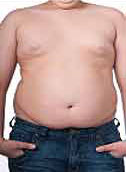
MONDAY, Jan. 23 (HealthDay News) — Parents and caregivers should be involved in treatment programs for obese children and should lead by example, praise children’s progress and use setbacks as learning opportunities, experts say.
“In many cases, the adults in a family may be the most effective change agents to help obese children attain and maintain a healthier weight,” Myles Faith, an associate professor of nutrition at the Gillings School of Global Public Health, University of North Carolina at Chapel Hill, said in an American Heart Association (AHA) news release.
“To do so, the adults may need to modify their own behavior and try some research-based strategies,” added Faith, who is the chair of the writing group that published an AHA scientific statement in the Jan. 23 issue of Circulation.
The statement authors examined previous research on child obesity treatments that used behavioral change strategies and featured extensive involvement by parents and other adult caregivers.
Faith and his colleagues identified a number of strategies that have been linked to better outcomes, including:
- Working together as a family to identify specific behaviors that need to be changed.
- Setting clearly defined goals — such as limiting TV viewing to no more than two hours per day — and monitoring progress.
- Creating a home environment that encourages healthier choices, such as having fruit in the house instead of high-calorie desserts or snacks.
- Making sure parents commend children when they make progress, and don’t criticize them if they do backslide. Instead, helping children identify ways to make different decisions if they’re faced with the same kind of situation again.
- Never using food as a punishment or reward.
- Keeping track of progress toward goals.
“While these strategies were implemented by health care professionals in a treatment program, the psychological principles on which they are based provide sound guidance for families of obese children as well,” Faith said.
More information
The American Academy of Pediatrics has more about childhood obesity and treatment.

